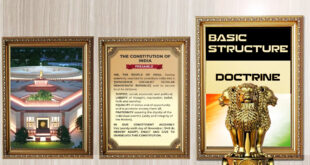Maratha reservation borders on class legislation rather than signifying reasonable classification
Under Prime Minister Narendra Modi, the Bharatiya Janata Party (BJP), once considered to be just a party of upper caste Hindus, is beginning to expand its social base. And a party that has consistently criticised the Indian National Congress for its so-called appeasement policies including sub-quotas for minorities within Other Backward Classes (OBC) and reservation for OBC Muslims is no longer hesitant in extending reservation to newer castes.
In keeping with this line, one has seen it introduce reservation for politically dominant castes such as the Gujjars in Rajasthan, Patidars in Gujarat and the Marathas in Maharashtra. The BJP government in Uttar Pradesh has included 17 OBC castes in the Scheduled Castes list. Even the judiciary that has so far been quite concerned about the ‘merit’, ‘efficiency in administration’ and interests of ‘general candidates’, has sent out mixed signals on invoking the strict scrutiny test in examining the constitutionality of a reservation policy. The Supreme Court has refused to stay the Central government’s decision to grant 10% quota in jobs and education to the economically-weaker sections and the Bombay High Court has now upheld reservation for the Maratha community. On classification
After all, social and educational backwardness are but an aspect of backwardness and must therefore fall within the OBC classification. Even conceding that Marathas are backward and need reservation, they should have ideally been included within the OBC. But the High Court upheld the creation of a distinct class of socially and educationally backward class with just one caste (Marathas) included under it. The issue of Gujjar reservation was struck down in Captain Gurvinder Singh (2016) though along with Gujjars, four other castes were also given the benefit. Jat reservation, in Ram Singh (2015), was declared unconstitutional because only one caste was favoured. Maratha reservation thus borders on class legislation rather than reasonable classification. Article 14 prohibits class legislation.
Since the National Commission for Backward Classes was not consulted, the constitutionality of Maratha reservation is suspect but the High Court observed that the NBCC had in no way taken away the powers of the State commission. Similarly, the Uttar Pradesh government has ignored the National Commission for Scheduled Castes in according SC status to 17 castes. The weakest part of the judgment is ignoring the 50% upper limit of reservation by relying on the small window of exception permitted in Indra Sawhney, i.e. the factor of remote or far flung areas and an absence from national main stream. None is available to the Marathas.
Source : https://www.thehindu.com/todays-paper/tp-opinion/more-appeasement-than-justice/article28337531.ece
 Chinmaya IAS Academy – Current Affairs Chinmaya IAS Academy – Current Affairs
Chinmaya IAS Academy – Current Affairs Chinmaya IAS Academy – Current Affairs



